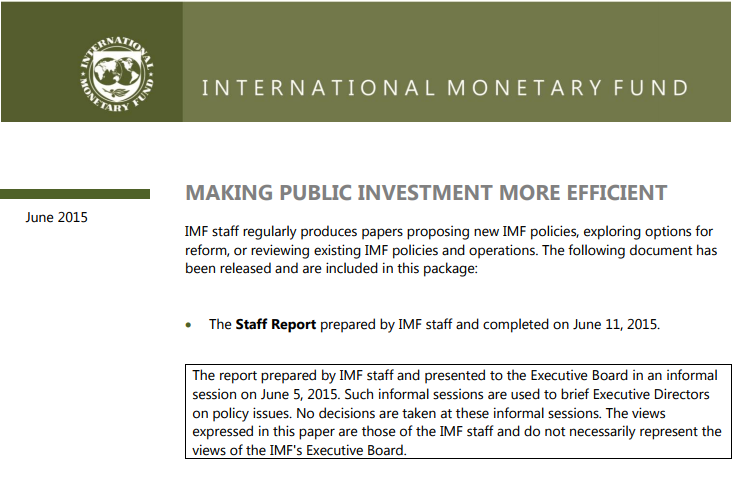901 results found
Featured results



More results
The purpose of this study is to provide an overview of the main elements that should be taken into consideration when evaluating the potential for specific projects, it is important to give some indication of potential cost (capital and operating) of an LNG chain.

In September 2015, the General Assembly adopted the 2030 Agenda for Sustainable Development which includes 17 Sustainable Development Goals (SDGs) and emphasizes on a holistic approach to achieve sustainable development for all.

The paper “Partnering to Build a Better World: MDBs’ Common Approaches to Supporting Infrastructure Development” presents a brief description of how MDBs work with their Borrowing Member Countries (BMCs) .

The National Framework for Traditional Contracting provides a best practice framework and commercial principles for delivering infrastructure through public procurement.

This note seeks to identify a research agenda for addressing the main gaps in information for understanding the drivers and impediments of long-term investment and related financing.

The Decision Tree Framework is a robust decision scaling approach from the World Bank that provides resource-limited project planners and program managers with a cost-effective and effort-efficient, scientifically defensible, repeatable, and clear method for demonstrating the robustness of a project to climate change.

This paper studies the joint decision to invest in such infrastructure, and retrofit it later, given that future climate damages are uncertain and follow a geometric Brownian motion process with positive drift.

This guide provides a high-level overview of each assurance process for infrastructure projects in the Commonwealth.


This paper finds that better Public Investment Management enhances public infrastructure quality and economic growth, and pinpoints key institutional reforms needs to boost public investment efficiency and productivity.


This report outlines the guidance and recommendations concerning the reform proposals of state owned enterprises operating in the field of water supply and urban sanitation as well as providing guidance/recommendations concerning economic management options for service providers in Vietnam.

The Decision Tree Framework is a robust decision scaling approach from the World Bank that provides resource-limited project planners and program managers with a cost-effective and effort-efficient, scientifically defensible, repeatable, and clear method for demonstrating the robustness of a project to climate change.

This guide outlines five steps in the context of achieving a knowledge exchange, (i) Anchor the knowledge exchange, (ii) Define the knowledge exchange, (iii) Design and develop the knowledge exchange, (iv) Implement the knowledge exchange, (v) report the results. Case studies from South America and Africa are discussed with reference to this guide. This is the second edition of the document updated in 2015.

This guide outlines five steps in the context of achieving a knowledge exchange, (i) Anchor the knowledge exchange, (ii) Define the knowledge exchange, (iii) Design and develop the knowledge exchange, (iv) Implement the knowledge exchange, (v) report the results. Case studies from South America and Africa are discussed with reference to this guide. This is the second edition of the document updated in 2015.

This report looks at the nature of Variable Renewable Energy (VRE) and the resulting challenges associated with the integration of VRE technologies into a power system. It provides an overview of the measures available to limit and manage these challenges. This report highlights the importance of increased flexibility when integrating high levels of VRE, and focuses on two sets of options to provide such flexibility: natural gas-fired power generation technologies and energy storage.

The use of public-private partnerships to design, build and deliver infrastructure worldwide has grown significantly in the past decade.

The Public-Private Partnership Legal Resource Center (PPPLRC) provides sample legal materials which can assist in the planning, design and legal structuring of any infrastructure project.

The Project Readiness Assessment (PRA) is a standardized tool managed and financed by the Global Infrastructure Facility (GIF).

This technical note provides an overview for authorities who wish to conduct flood hazard and risk assessments and who must develop a step-by-step plan for carrying out the assessment that is appropriate and feasible in the local context.

The purpose of the Guidelines is to establish the types of socioeconomic evaluations that will be applicable to the investment programs and projects considered by the dependencies and entities of the Federal Public Administration.

The purpose of the Guideline is to establish the types of socioeconomic evaluations that are applicable to the mass urban transport investment projects.





